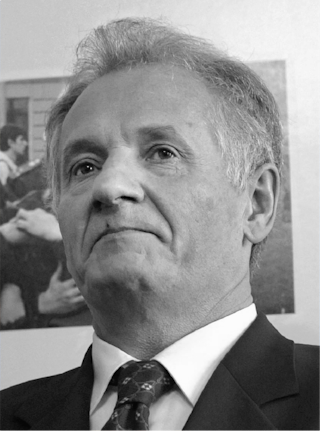
Zbigniew Bujak
Lech Walesa has called Zbigniew Bujak “One of the most outstanding and bravest fighters for citizens’ rights and Solidarity.”
Trained as an electrical technician and soldier, Bujak joined the opposition in 1978 while he was working at a tractor factory. After organizing a strike in 1980, Bujak became the leader of the Warsaw branch of Solidarity.
In 1981, the Polish government declared martial law in an attempt to crush Solidarity. Escaping capture in Gdansk, Bujak secretly returned to Warsaw, where, forced into hiding, he set up one of the most elaborate and effective underground civil society operations the world has seen. Bujak continued his efforts on behalf of Polish freedom until he was captured by the secret police in 1984.
After his release from prison during general amnesty, Bujak resumed his leadership of Warsaw Solidarity until 1989. He was one of Solidarity’s leading negotiators in the “Round Table Negotiations,” which paved the way for Poland’s peaceful transition to democratic government.
The collapse of Communism that started in Poland led to change in Hungary, East Germany, Czechoslovakia, and across the Eastern Bloc.
In the new Poland, Bujak helped to found the Citizens’ Movement-Democratic Alternative and the Union of Labor, and he served in Parliament from 1991 to1997. There, he spoke eloquently on behalf of women’s rights and against anti-Semitism, incurring the wrath of many who were once his ardent supporters.
Bujak describes the willingness to hold unpopular principles as “citizen courage,” explaining: “When you have to make a decision—whether to sign a petition, or whether to participate in a demonstration... it requires a different courage to be ready for this type of activity.”